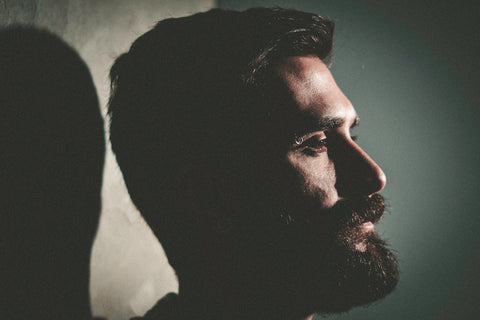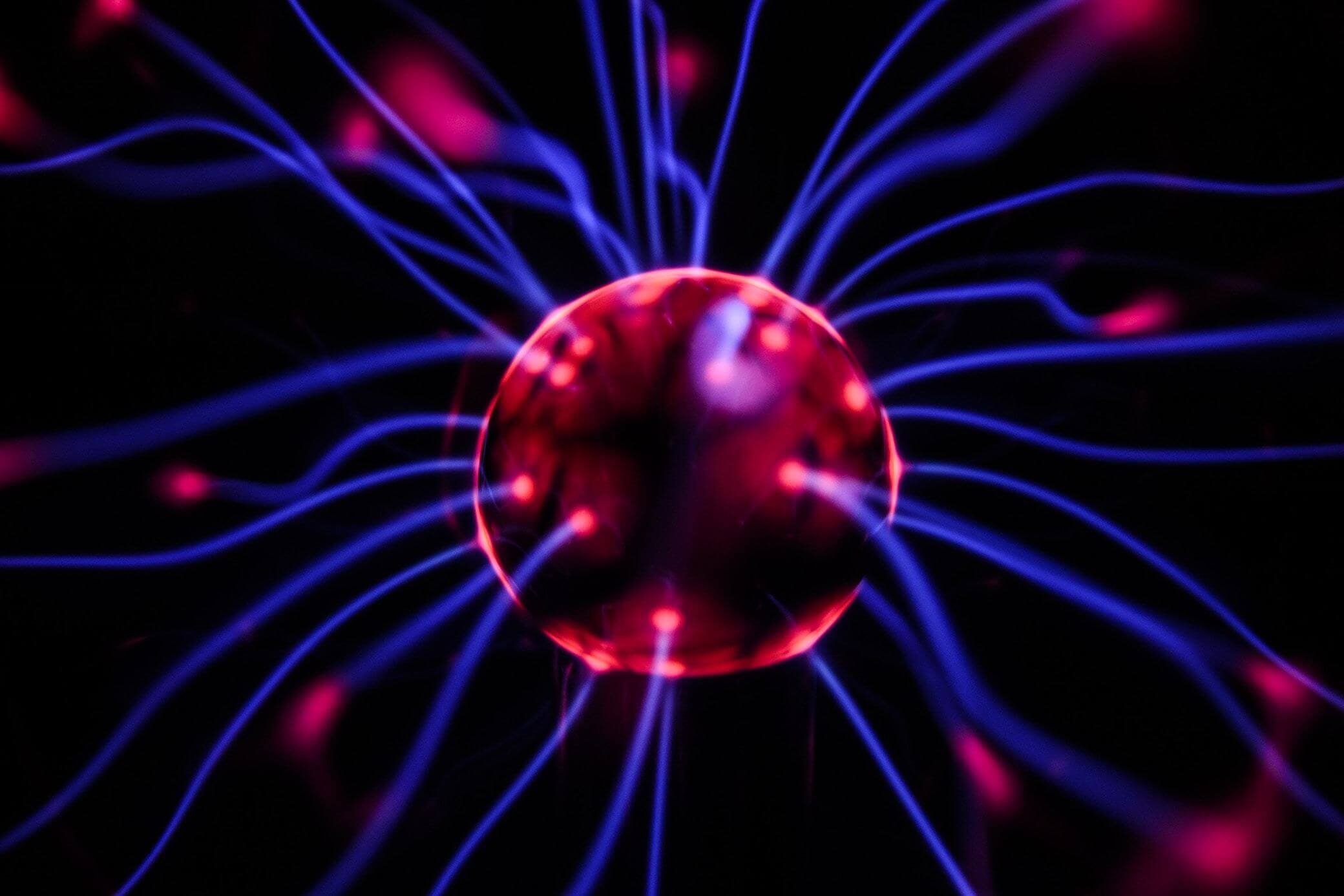Vitamins For Beard Growth


Beards have always been a classic look for men. Growing a beard is a right of passage, signifying that a boy has grown into a man. Now more than ever, the scruffy look is in style, and bearded celebrities are a common sight. Beards are not just acceptable, they are cool. Guys are embracing their facial hair and looking darn good while doing it. This should be no surprise since beards are not just a fashion statement. For the right men, they can really enhance certain features, giving a man a more handsome appearance.
Unfortunately, growing a beard is not easy for everyone. Men often grow up thinking that once they reach a certain age, a beard will inevitably follow if only they will let it. The appearance of facial hair typically starts around the age of 13 when a boy first hits puberty. However, these first signs of facial hair often do not develop into the beard that we have dreamed up. While a person’s age is a huge factor when it comes to growing facial hair, genetics and testosterone levels will also play a large role in determining whether or not someone will be able to grow out a thick and bushy beard. On top of these, a person’s diet and level of exercise can also be determining factors.
Whether you are struggling to grow a beard at all or are hoping to make your facial hair more thick and full, we are here to help. People often hear about different vitamins to help beard growth, but often do not pursue this avenue because of a lingering question: “do beard growth vitamins work?” In this article, we will answer that question and provide you with a tried and true list of vitamins for beard growth. After reading, you can begin integrating these vitamins into a supplement routine and look forward to growing a thicker, fuller beard.
In-Depth: The Factors that Determine Beard Growth
We briefly touched upon the factors that determine whether a person is able to grow a beard, but we will now take this chance to go a bit more in-depth.
Age: As we said, the first inklings if facial hair growth begins around the age of 13 when a boy first hits puberty. Some men will then see their full beards come in when they are as young as 18 or nineteen. Others may see sparse areas of growth until their mid to late 20s or even later, while some will find that their beards never fully come in, and this is where other factors play their role.
Genetic Factors: Genetics plays one of the largest roles in determining the amount of facial hair that a person will have. A person whose father is able to grow a thick beard may also have the same genes passed down to them. Moreover, a person’s race and ethnicity will come into play. For example, people of Native American, Latin American, and Asian descent are less prone to growing full beards than people of Greek and Italian Heritage.
Testosterone: A person’s testosterone levels will be one of the largest factors when it comes to hair growth. Facial hair is largely propelled by testosterone, a hormone found in human beings that is largely associated with sex drive and plays a vital role in sperm production, bone and muscle mass, fat storage, and red blood cell production. Additionally, testosterone levels can have a large effect on a person’s mood. The production of testosterone starts to increase significantly during puberty and begins to dip around the age of 30 or so. Having low testosterone levels can negatively affect beard growth and often leads to patchy beards. However, even healthy men in the prime of their lives and testosterone production can have trouble growing a beard due to the genetic factors described above.
Exercise: Exercise improves blood flow, which helps to stimulate follicle hair growth. Moreover, exercises like weightlifting and strength training have been shown to at least temporarily boost testosterone production. Finally, the effect that exercises can have on your body mass and weight can indirectly affect beard growth since obesity has been shown to lower testosterone levels.
Sleep: The evidence is incontrovertible that getting adequate sleep is vital for optimal health with benefits ranging from improving the immune system and maintaining a healthy weight to reducing stress and promoting proper cognitive functioning. Additionally, getting enough sleep can have beneficial effects on facial hair growth since testosterone is primarily released during sleep, and lacking the proper amount of sleep (which is on average about 7 to 9 hours a night) can have adverse effects on this process. In fact, one study found that daily sleep restriction lowered testosterone levels in healthy young men, and another study found that testosterone levels peak around the start of the first REM cycle and remain at that level until you wake up. This is why we do not normally notice facial hair growth during the day but that we may often realize growth once we wake up from a night of sleep.
Hygiene Routines: We might think that keeping our skin clean and moisturized will only have effects on our complexion, but these skin and beard care practices can also have positive effects on the actual growth of our facial hair. When we exfoliate our face, this will help remove dead skin cells and debris from around each hair follicle, ultimately stimulating the growth of hair in these areas (not to mention the aesthetic benefits of beard care).
Diet: Eating a healthy diet may benefit your beard growth by keeping your weight down and affecting your testosterone levels in that way, but there are also a number of vitamins, fats, and carbohydrates found in balanced diets that can be beneficial as well. These vitamins, which you can get either through diet or through supplementation, will be the focus of the rest of the article.

Vitamins for Beard Growth
1. Biotin
Biotin, also known as vitamin B-7 and vitamin H, is a water-soluble vitamin that is part of the B-complex which includes thiamine (B-1), riboflavin (B-2), niacin (B-3), pantothenic acid (B-5), pyridoxine (B-6), folate (B-9), and cobalamin (B-12). The B vitamins are known for being essential to a number of the bodies functions, including cell health, growth of red blood cells, energy maintenance and production, eyesight, healthy brain function, and proper nerve function. While playing a roll in many of these functions (especially the conversion of nutrients into energy), the B-vitamin Biotin is best known for the role it plays in the health of your hair, skin, and nails, which is why it is often included as an essential component beauty formulas, like Tropical Oasis’ Premium Liquid Beauty Supplement.
What many men do not realize is that biotin is also one of the best possible beard growth vitamins, which is why it tops our list. Here’s how it works:
Keratin is a type of protein that makes up your hair, skin, and nails. It is the structural building block of your hair. The reason that biotin is considered such a great vitamin for hair growth is that research clearly shows that biotin improves the body’s keratin structure. The result of a proper biotin intake, then, is fuller, healthier-looking hair. This includes the hair on your hair, and yes, your facial hair as well.
Again, you might be wondering, “do beard growth vitamins work?” Well, in the case of biotin, the research is clearly affirmative. One recent study in 2015 showed that participants suffering from hair loss who took a supplement containing biotin for 90 days experienced a significant amount of hair growth in the affected areas. This seemed to confirm an earlier study from 2012 which showed that participants experienced significant improvements in hair growth and hair quality after 90 to 180 days of supplementation.
For the optimal hair growth effects, you will want to make sure that you are getting high-quality biotin easily absorbable supplements. Unfortunately, many pill form supplements have terrible absorption rates of one 15-20 percent, meaning that the remaining 80-85% of biotin is flushed right out of your system. This is why Tropical Oasis’s Biotin For Hair Growth supplement is one of the best options for those looking to get the optimal effects of biotin for their beard growth. Unlike pill supplements, Tropical Oasis’s liquid supplement offers the best natural ingredients with a 98% absorption rate, making it one of the best beard growth supplements on the market.
2. Vitamin C
Vitamin C is best known as the vitamin for curing a common cold. Taking the vitamin has been shown to give a boost to the immune system when it needs it most. But this essential vitamin can also have many benefits for your hair growth and health, while vitamin C deficiency has been shown to have many negative effects on your hair, such as dry, brittle hair that snaps easily.
Vitamin C is a powerful antioxidant that helps to protect against oxidative stress caused by free radicals. Thus, Vitamin C is important for hair growth since free radical damage can block hair growth and cause your hair to age and look less full. Additionally, the body needs vitamin C to create a protein called collagen, which is an important part of the hair structure. Finally, vitamin C helps your body better absorb iron, an essential mineral for hair growth which we will talk about below.
3. Iron
Iron is an important component of hemoglobin, the substance in red blood cells that carries oxygen from your lungs to transport it throughout your body. Hemoglobin represents about two-thirds of the body’s iron. If you don't have enough iron, your body can't make enough healthy oxygen-carrying red blood cells. A lack of red blood cells is called iron deficiency anemia. Iron’s role in helping red blood cells carry oxygen to your cells makes it an essential mineral for many bodily functions including hair growth.
Iron deficiency has been tied to symptoms such as shortness of breath, fatigue, chest pain, and hair loss. But more than just hair loss, low levels of iron have been shown to decrease the ability of the follicle cells to grow. When a person has the right levels of iron in the system, the follicle cells will receive the proper amount of oxygen necessary to grow fully.
Luckily for men looking to grow their beards, men need much less iron than women do. While women need up to 18 mg of iron daily, men only need around 8 mg of iron in their daily diet. Foods rich in iron include animal products, such as liver, lean red meat, chicken, and eggs, nuts and seeds, beans, and dark green leafy vegetables, such as spinach, kale, seaweed, broccoli, asparagus, and parsley.
4. Vitamin E
Vitamin E is one of the most well-known vitamins when it comes to hair health and growth. The benefits of vitamin E are mostly tied to the antioxidant properties attributed to this vitamin which both reduce cell damage and promote hair growth.
One of the most important effects of vitamin E is that is can help support a healthy scalp. Free radicals and oxidative stress can cause the hair follicles in a person’s scalp to break down, but the antioxidant effects of vitamin E help to prevent this from happening. When the hair follicle cells in a person’s scalp are healthy and free of damage, they are far more likely to produce hair quicker and with a more full appearance. This makes vitamin E definitively one of the best beard vitamins.
Some of the foods that are the richest in vitamin E include sunflower seeds, almonds, avocados, spinach, butternut squash, kiwifruit, broccoli, trout, olive oil, and shrimp. Alternatively, many people keep up their vitamin E intake along with their intake of many other essential vitamins through high-quality multivitamins.
5. Vitamin A
Vitamin A can be thought of as a renaissance vitamin because the benefits of vitamin A are so many and varied. Most known as a vitamin that improves eye health, vitamin A lowers your risk for certain cancers, supports a healthy immune system, reduces the risk of acne, supports bone and joint health, and promotes fertility and reproductive health. On top of all of these great benefits, vitamin A is one of the best beard vitamins around.
Vitamin A is actually a group of vitamins (the vitamins A) which are a group of unsaturated nutritional organic compounds that include retinol, retinal, retinoic acid and a number of provitamin A carotenoids (the most notable of which is beta-carotene). One of the major functions of this group of vitamins is the promote cell growth. In fact, every single cell in the body needs vitamin A to grow.
The link between vitamin A and beard growth is clear because hair is the fastest growing tissue in the body which requires a significant amount of vitamin A to carry out its processes, so vitamin A deficiency has been tightly linked to problems such as hair loss. Additionally, vitamin A also helps the skin glands to produce an oily substance called sebum, which moisturizes the scalp and keeps the hair healthy.
Making sure that you get enough vitamin A is essential the growing a thicker, fuller-looking beard, but it is important to note that getting too much vitamin A can produce a number of side effects, of which, ironically, hair loss is one, showing that it really is possible to get too much of a good thing.
In addition to great vitamin A supplements and multivitamins as a great source of vitamin A, there are a number of easily accessible dietary sources of vitamin A, including, sweet potatoes, carrots, pumpkins, spinach, and kale, and some animal products like milk, eggs, and yogurt. If you are looking outside of your diet to dietary supplements for vitamin A, one of the best natural supplements around is cod liver oil, which also contains large quantities of the omega-3 fatty acids, which have their own range of benefits for hair health.
6. Methylsulfonylmethane (MSM)
Methylsulfonylmethane (MSM) is a sulfur chemical compound found in plants, animals, and humans most often taken in the supplement form for its anti-inflammatory properties that treat arthritis pain and swelling. MSM, either in beard oils or as ingestible supplements, has also been studied as a great natural ingredient for promoting hair growth, hair regrowth, and general hair health.
MSM can be found in very small traces in various fruits, corn, tomatoes, milk, and coffee, though the amount of MSM you manage to get from your diet will likely be negligible. For this reason, people looking to get MSM will usually turn to dietary supplements for the optimal effects.

Looking Forward to the Full Beard of Your Dreams
There are so many healthy men that want to have rich, full beards, but either due to their genetics, their testosterone levels or due to the various other factors we have discussed in this article, they find themselves struggling to move beyond negligible facial hair growth and patchy beards. While we cannot fix our genetics, there are other ways to achieve our facial hair goals. You can take advantage of the many benefits of various vitamins for beard growth and high-quality formulas like our liquid Biotin For Hair Growth. If you want to grow a thicker beard through natural means, there is really no better way than by taking your full range of vitamins, and providing you with vitamins of the highest quality is everything that we here at Tropical Oasis are about!



